You don’t become a prepper overnight, and there is a lot of hard work you have to do before you can even begin to consider yourself a prepper. For more than 10 years, I’ve been caught up in this emergency preparedness lifestyle, and I can tell you that I’ve seen it all.
I’ve seen people fail, and I’ve seen people succeed even though most of the odds were working against them. I know for a fact that starting on this path is hard, and it won’t get any easier on your way to becoming prepared.
I’ve decided to write this article to give people a helping hand, regardless of whether they are just starting to get prepared or have been in this game for a few years. Hopefully, these suggestions will help you follow a certain logical approach and make you question things.
Steps to becoming prepared:
Step 1: Start amassing information before resources
I’ve noticed that the first thing most folks do is read an article or two, or perhaps watch a TV show portraying preppers and survivalists, and then they start building a stockpile of the things they believe will help them survive everything. This is the wrong approach because it will force you to spend money and will create all sorts of logistical problems (where to put all your resources, what to do if you end up with a surplus and not enough storage space, how to test them and when, etc.).
Before ransacking the grocery store or the first big box store you see, how about putting things in order in your current situation? How about learning about preparedness and what it implies, and then start making lists and plans?
If you just stockpile stuff, you will most likely become a hoarder rather than a prepper. There is more to emergency preparedness than buying stuff, and there is a lot of reading and learning that needs to be done first. This is an issue for some because they don’t have the time and willingness to learn new things, or perhaps they are used to throwing money at problems until they get fixed.
Start slow and build on what you can; otherwise, you will quickly become overwhelmed by all of it, and you will quit without thinking twice about it.
Begin by establishing what you need to prep for (more on this later on), what resources you have available for the needs of each individual in your family, what else you need (because you will certainly need other stuff), how and where to store them, and so on.
Once you find the answers to all these issues and you are certain that everyone in your family has enough resources to survive for six months or more, then comes the “what if?” part, which I consider to be the trickiest. Here are a few examples of how it works in various aspects of emergency preparedness:
What if my water gets contaminated or we use it all?
If that is the case, you need to make sure you can procure additional water and ration the quantity you have left until you do so.
What if my supplies get damaged or stolen?
In this case, you need to procure more (buy if possible, barter with what’s left, or scavenge) and you should have a backup plan, like a stash or two.
What if I get injured or killed? Who can replace me?
Your spouse should be the ideal candidate for the job if something like that happens, but that won’t be easy. You need to make sure they have the right mindset for the job, possess similar knowledge, and havebeen involved in all your plans, every step of the way.
What if I’m forced to evacuate?
Well, this can be highly probable depending on your geographic location and population density. In such a case, you will need a bug-out bag, a bug-out vehicle, and a bug-out location. All these need to be planned in advance, and you will see that they will generate additional “what if?” situations.
So, as you can see, you need to acquire a lot of information to be able to make plans and prepare for various scenarios. The good news is that, regardlessof the resources you have or purchase, these can be used for various emergency situations and will cover a lot of scenarios.
Step 2: Establish prepping priorities
You can’t prepare for everything, and that’s the cold, hard truth. It’s impossible for the average Joe to become an expert survivalist or prepper, and there’s no use in tricking people into thinking that such a thing is achievable. However, you shouldn’t despair because being prepared means increasing your chances of surviving a certain event that would render the general public helpless.
What you can do is plan and prepare to maximize your chances of making it out alive when push comes to shove. This means that the event I’ve mentioned above needs to have real odds of occurrence, and you should prioritize if there is more than one event (which is usually the case) you are prepping for.
Some folks prepare for the End of Days, WW3, or an alien invasion, and that’s how they see our future unfolding. I can’t tell you which of these options has the highest probability of occurrence since I can’t see the future. However, from a practical and more down-to-earth approach, I would choose the WW3 event if someone were to force me to pick one.
That being said, you need to be realistic about your prepping plans and expectations. For example, if you live in an area that is prone to floods or wildfires, then it would make sense to prepare for those events. How about that “what if?” scenario? How does it come into play here?
Well, in both cases, you need to make sure your resources are stockpiled in a safe place and that you have a bug-out plan ready to act upon when needed. But what if the flood or wildfire doesn’t reach your area? How can it still affect you? One effect would be the lack of electricity as the grid can be damaged, and you can plan for the effects of a prolonged blackout.
The point I’m trying to make here is that you should plan realistically and spend your time and resources on the events with the highest probability and leave fiction out of it.
Step 3: Organize your finances
Emergency preparedness is expensive, and this is a reality you will begin to understand once you cover the first two steps. The high cost of prepping is usually the number one reason most people quit, and this happens more often than you think, with the last 5 years seeing an increase in people giving up. At least that’s what I and others like me have noticed in our network of people, and it makes sense with the higher cost of living nowadays.
There is one solution to this, and unless you are rich, you will have to be strict when it comes to your finances. Also, get rid of debt because that’s a burden that only gains weight and drags you down.
Prioritize and buy only what’s needed. For example, when it comes to tools and gear, I don’t cheap out if these are vital to my survival. I am a frugal person, and I’ve learned to use various tricks and tips to make sure I have everything needed. I won’t tell you that if you stop buying coffee from Starbucks, you will have enough money to spend on what you want because those are pipe dreams.
I will, however, tell you to learn to prepare various foods to make sure your pantry is full and to learn how to collect and purify water since these are the main priorities. I will tell you to learn how to improvise shelters in various environments or how to use and improve your shelter system, no matter where you are.
We live in the age of information and speed, and you can gain a lot of knowledge in a short amount of time compared to our parents and grandparents. Use this to your advantage and learn how to use and reuse stuff, build or improve things so that you won’t have to buy everything.
I will also tell you to look at the days of the past and discover how your ancestors managed to survive and thrive because their survival, bushcrafting, and homesteading practices can still be put to good use today.
Notonlywillyou manage to save money, but you will also gain skills that will be of high value when the normalcy we are all used to is no more.
Step 4: Don’t take on all of this alone
You’ve seen how the “lone wolf” scenario is romanticized in books, TV shows, and movies, but that’s far from being the perfect solution for becoming prepared. Humanity has survived only through the cohesion of communities and the building of alliances.
Get everyone in your family involved in your prepping plans and reach out to other like-mindedindividuals when things get tough. Nobody is an expert, and we have a lot to learn from each other since emergency preparedness is a continuous learning experience.
Surviving alone is just that—survival—and I, for one, consider that thriving can only be achieved when others join in. You won’t be able to build everything alone, you won’t be able to grow and protect your food alone, and most certainly, you won’t be able to take care of every health issue you may have alone.
A last word
The steps above should be, in my opinion, the logical approach to prepping, and even though these may sound like common sense to some of you, most folks don’t spend the time to investigate what emergency preparedness is all about. This is a continuous journey where you grow and learn more each day, and it’s a much more bearable “burden” if you don’t carry it alone.


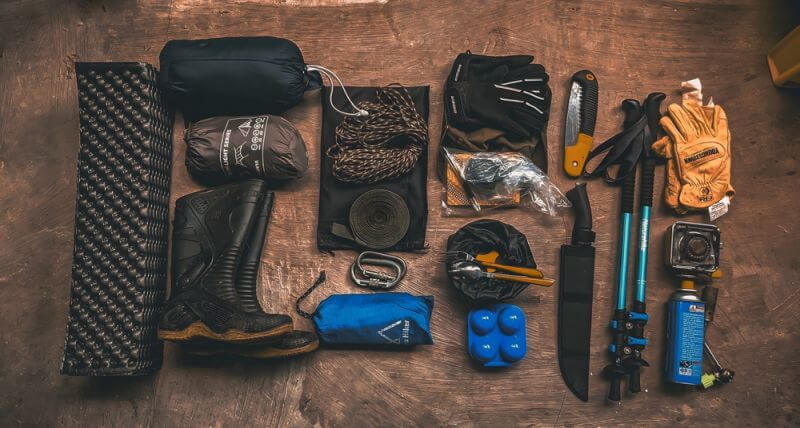

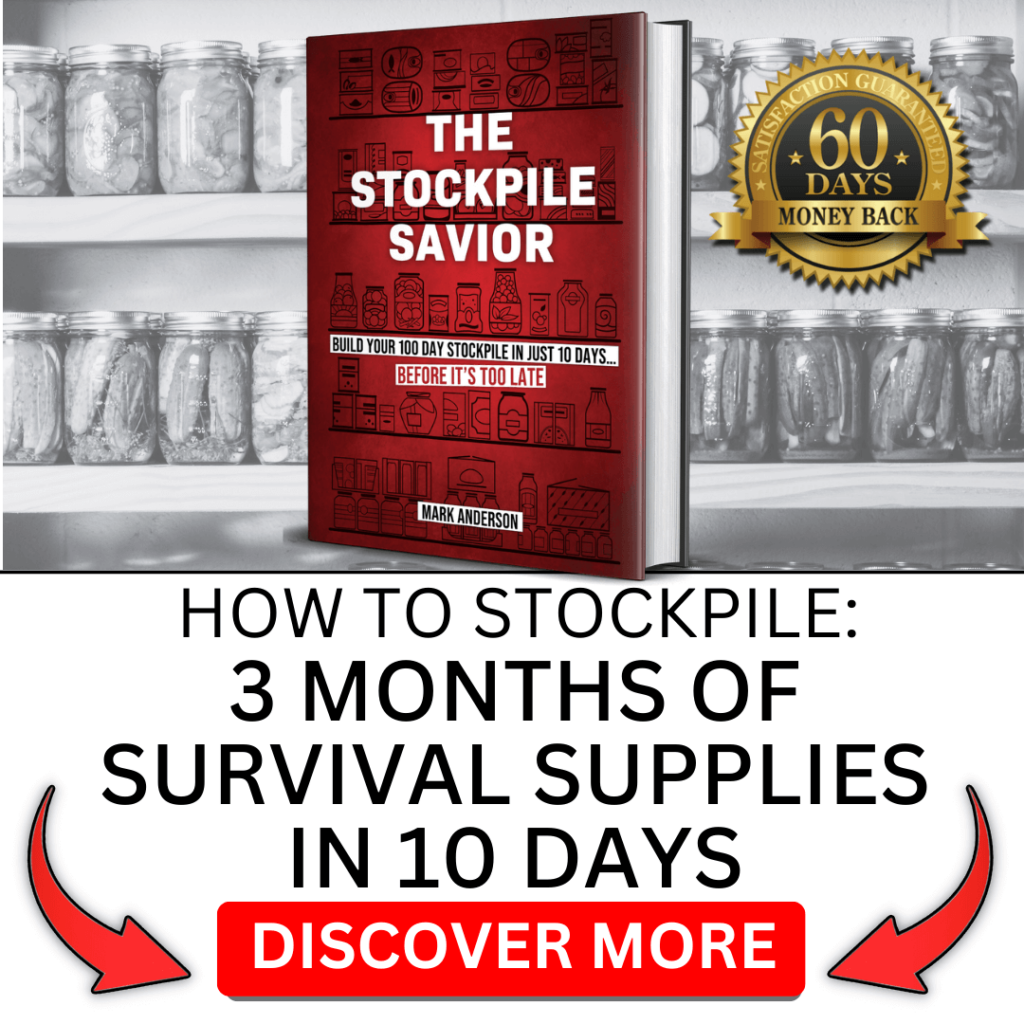

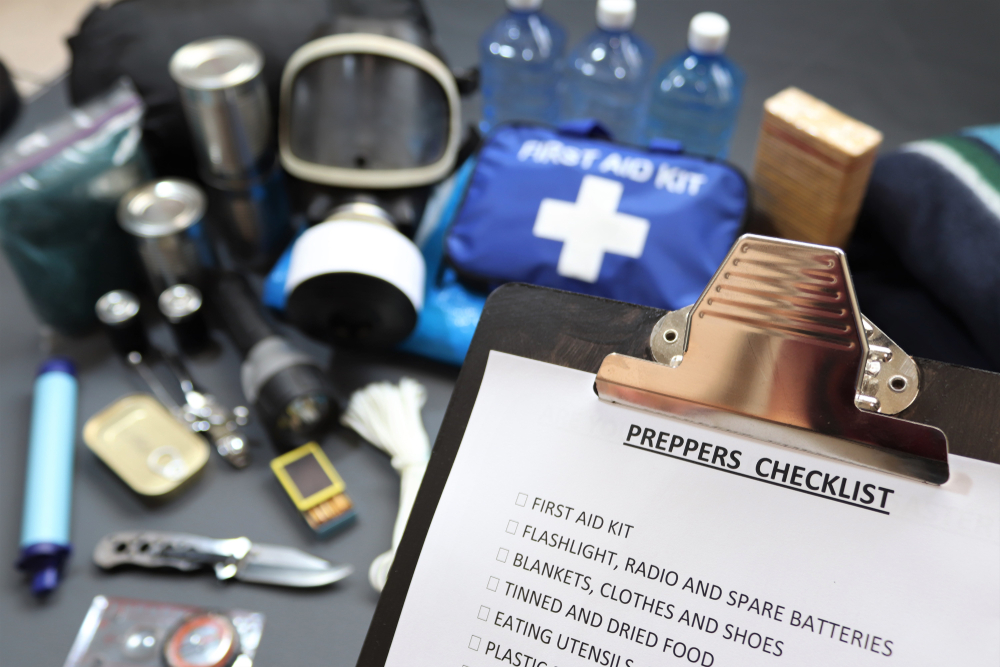
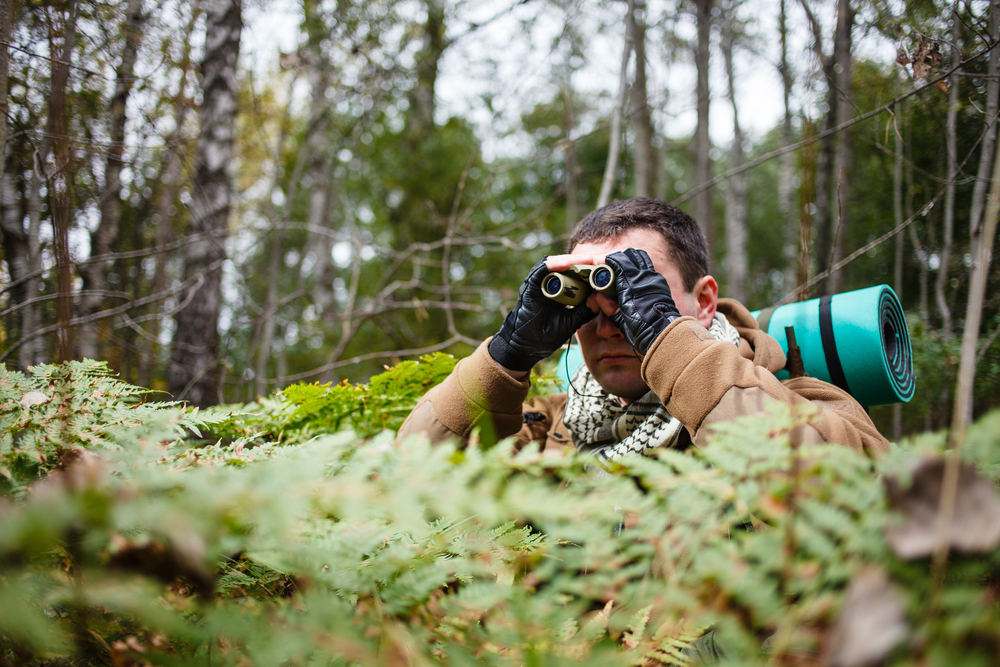
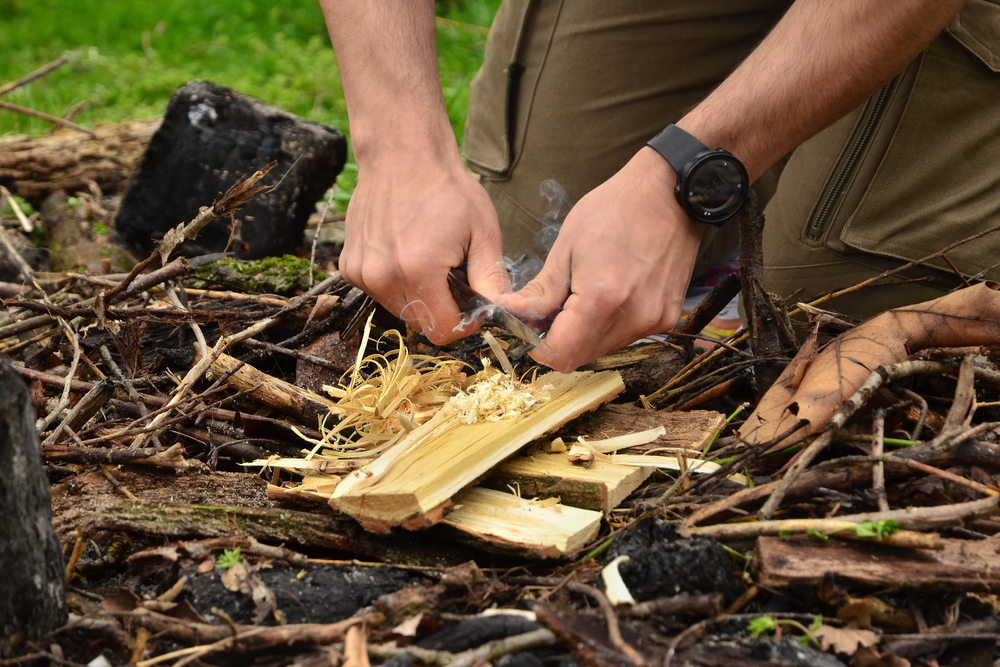

Ronald H Levine | September 5, 2024
|
“Spend money” is a hard sell to introduce someone into becoming prepared. Instead, get those you care about who are resistant to that, perhaps living paycheck to paycheck, to have some emotional investment of actually seeing preparedness accomplishments even without spending money.
Organizing preparedness thoughts are one, but even more encouraging is actually seeing actual preparedness in their home.
I get them started with FREE things. They can clean and save glass jars that they otherwise throw in the trash and fill with drinking water. Plastic bottles get saved with water for washing and sanitation.
Then they are seeing their collection grow under beds, in closets and other available space. Seeing it means thinking about it. Thinking about it gets them started being open to ideas and their own thoughts.
Water is not enough! Sure, that’s a problem! A problem for the family down the street much more prepared with the fancy expensive commitments, yet they left out water perhaps because it isn’t glamorous and advertised. Whatever the reason, don’t be that person, but there will be those who left water out of their preparedness. They absolutely will NOT trade any of their valuable and expensive preparedness acquisitions for lowly water that was saved for FREE! Well, that’s true for the first and second day without water. They WILL trade on the third day for water!
Lesson: Don’t be that person without water. Be the person with water and you can do it now for FREE! No excuses.
[email protected]
John | September 13, 2024
|
Wow!!! What a great post! What if my water runs out or is contaminated? Get More Water! What a great idea! I would never have thought about getting more water! Thank you. What if my supplies are lost or stolen? Get More Supplies!!! Again, a great idea I would never have thought of. Thank you again! You state you have been prepping for 10 years and have seen it all. I have been prepping since the 70’s and I haven’t “seen it all”. I know at least 500 preppers across this great nation. I see seasoned preppers that don’t know a whole lot about what it takes to survive even a small disruption in their lives. It never surprises how our population has NO common sense! A new prepper you need a Bug out bag, Bug out vehicle and a BOL. I think that a person new to prepping should start with the very basic items, WATER. A prepper can never have too much water. Next a high end (don’t skimp here) water filter that is easy to transport. Next learn to make fire. Again, I know a ton of preppers whom have tried to start a fire in the rain. When asked how often they practice starting fires, the answer is always the same: It’s easy! I always ask if they have started a fire in a downpour? Answer: NO. We have monsoon rains here. Every rain storm I’m out there getting a fire going, out in the open, on the ground. How many of you practice in the pouring rain, not just some little drizzle. I mean when it’s coming down at a rate of 3 inches per hour. I do. Shelter is next. Can you make shelter from just what you can find around you in the desert or forest? I never take a tent when I go backpacking over night or for multiple nights. Don’t like the weight. I do like the idea to get as much info as possible just to learn from other’s mistakes. How about telling new preppers HOW TO FIND WATER? How 2 is 1 and 1 is none? Give new preppers some solid info! IMO. Also, no such thing as an expert prepper.
Shya | September 15, 2024
|
Step two, priorities, you suggest some of what to prepare for,
,,,,,, “Some folks prepare for the End of Days, WW3, or an alien invasion, and that’s how they see our future unfolding. I can’t tell you which of these options has the highest probability of occurrence since I can’t see the future. “
Well, the future is here NOW, and it’s your #3, the alien invasion. So you “nailed it”.
Even some mass media is beginning to finally cover it.
People who once were considered “from a certain party” like Mr. Musk and Kennedy JR. are seeing the light.